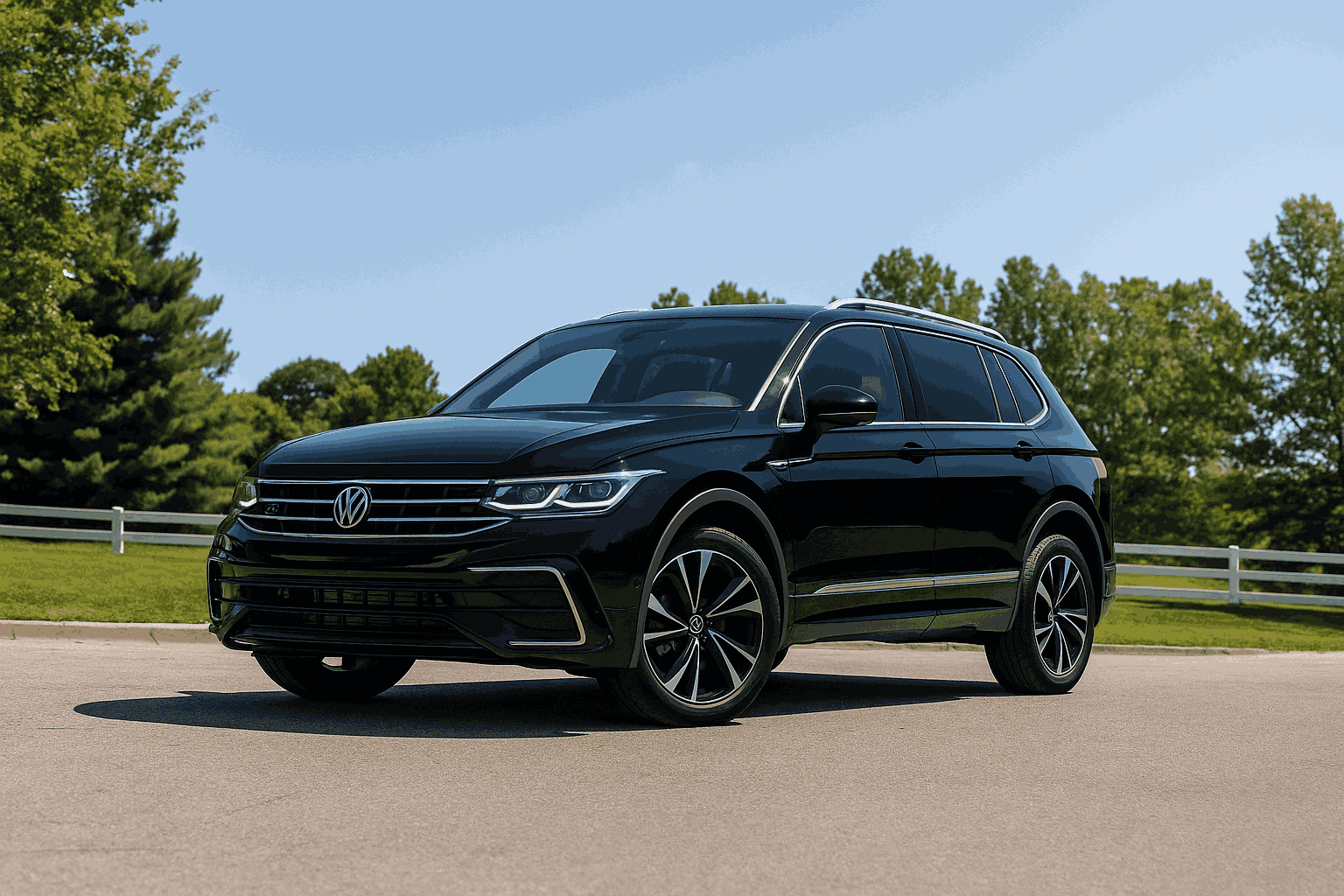
MSRP: $37,790
8.1 /10
Rating
Pros
- Refined, stable ride quality
- Upscale interior feel upgrade
- Strong safety tech suite
Cons
- Slow acceleration off line
- Touch controls lack intuitiveness
2022 VW Tiguan SEL R-Line 4Motion review with Vyocar
A smart, family-friendly SUV that blends comfort, practicality, and just enough tech — the 2022 Tiguan SEL R-Line 4motion proves everyday excellence is no accident.
Overview
If you’re shopping for a crossover that blends roomy seating, sleek design, and just enough performance to make your daily driving interesting, this segment offers some solid picks—but one model stands out thanks to its clever mix of technology, comfort, and practical flexibility. From the third-row seats (yes, they exist) to the smooth handling and peppy turbocharged engine, this vehicle shows why it’s becoming so popular in the American market.
During my own test drive, I noticed how refined the steering felt—especially when paired with Travel Assist, which held lanes confidently on longer stretches. The visibility is great all around, and the interior feels premium for the price, with upgraded materials and minimal glitches in the infotainment system (though I’ve read a few user experience complaints about occasional freezes). Whether you’re into mountain biking or just need the cargo area for weekly hauls, this long-wheelbase vehicle feels ready.
If you’re cross-shopping, check out Volkswagen Atlas Cross Sport for a slightly larger feel or the Mazda CX-30 if you want something more compact. This isn’t just another entry—it’s a surprisingly reliable, best-selling option that holds its own against alternatives like the Hyundai Tucson and Toyota RAV4, with better resale value and fewer dealership issues like burned oil or long back order waits.
What’s New for 2022
So, what’s actually new in the 2022 SUV world? Well, if you’ve been holding out since 2021, this one finally brings some modern flair without trying too hard to impress your tech-savvy cousin. The restyled grille, sleeker bumpers, and sharper LED headlamps give it a clean, confident appearance—kind of like when you upgrade your phone and suddenly feel 10% cooler.
Inside, the digital gauge panel looks crisp, though I still miss traditional knobs over these touch-sensitive controls (can we just not change the climate setting while driving like a ninja?). The steering wheel now includes Travel Assist, lane-keeping, and adaptive cruise, giving it that semi-autonomous feel that’s honestly pretty relaxing on long highway trips.
After 7k miles and a couple of Test drives in varying modes, I’d say VW gave this compact SUV the right updates—especially compared to Mazda’s options or even the Volkswagen ID.4 Pro S for EV fans. One small gripe: the heated seat button is still a little too easy to press by mistake, which gave me an unexpected sauna session one May afternoon. Otherwise, it’s a great option in the current lineup, especially the R-Line and SEL trims now showing up in showrooms. If you’re cross-shopping models, the 2024 Volkswagen Tiguan is definitely worth a look alongside these updates.
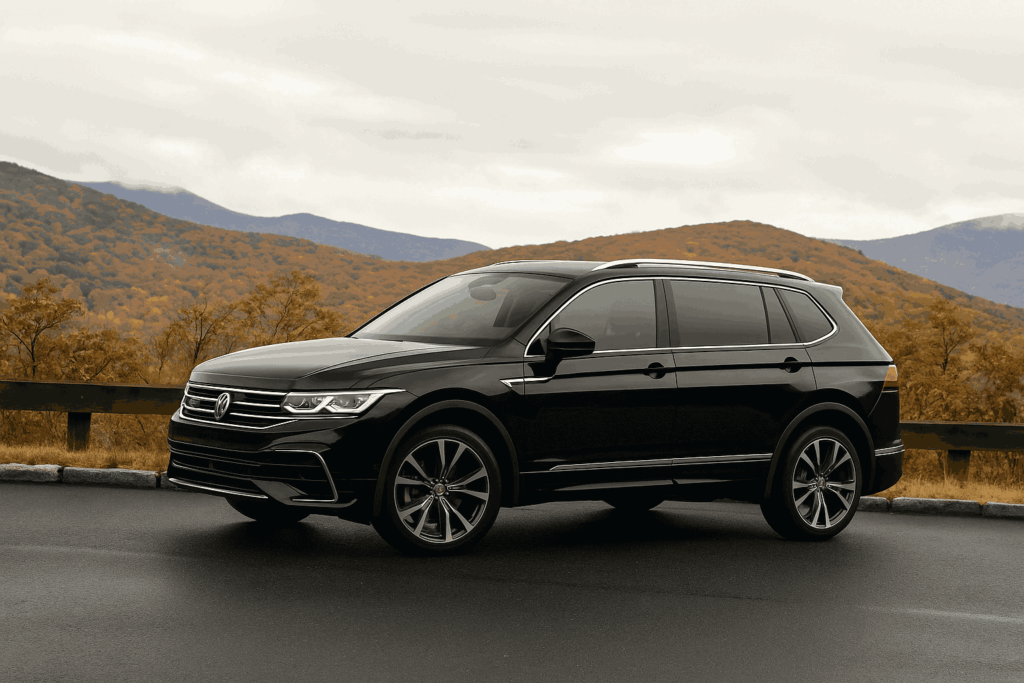
Pricing, Trim Levels, and Best Pick
For folks browsing the compact SUV aisle, this one hits a good balance between value, style, and just enough gadgets to keep your inner tech nerd happy. Starting around $37,790, the SEL R-Line may not scream “bargain,” but it sure does offer a lot—like a panoramic sunroof, upgraded materials, and enough premium touches to make your daily driving feel a notch above Subaru and other crossovers in the segment. I’ve tested the SE and SEL, and if you’re willing to pay the extra $1200, the R-Line really brings that upscale attitude—think sportier styling, more features, and a better match for today’s expectations. Toss in a solid warranty, and you’re looking at a practical pick that doesn’t feel like a compromise. If you’re cross-shopping trims or even thinking bigger, check out the Volkswagen Atlas, which stacks even more space and punch into the lineup.
Powertrain, Transmission, and Driving Dynamics
Under the hood, the 2.0-liter TSI turbocharged four-cylinder engine kicks out 184 HP and 221 torque, and while it won’t throw you back in your seat with 292 lbs of grunt, it builds up power with a progressive, responsive feel that makes daily driving easy. The transmission is smooth, the steering is accurate, and whether you’re on front-wheel or 4Motion all-wheel drive, it holds its poise well—even when taking tight corners. The zero-to-60-mph time hovers in the slowest range for the class (we’re talking seconds in the high range), but it’s still fun-to-drive thanks to great balance and solid chassis coordination.
The manual mode on the automatic setup isn’t the sportiest, but in Sport mode, there’s enough throttle response to keep things lively. On the highway, it feels stable, and during colder months (hello, 21’ December test run), it started without issue—even after 15k miles and one APR tune test. It’s not a hot hatchback like the Volkswagen Golf R, but there’s a natural athleticism that makes it more than a grocery-getter.
The standard stop/start system is mildly annoying, the brake-pedal feel is firm, and the rubbery low-end response can show when trying to make a quick race past a Tucson. Still, efficiency is decent, especially around 45 MPH, and there’s even an optional Sport mode that wakes it up a bit. If you’re willing to pay for quality and can overlook a bit of noticeable lag, this setup delivers a good blend of power, drivability, and athletic capability—just don’t expect perky launches or GTI thrills.
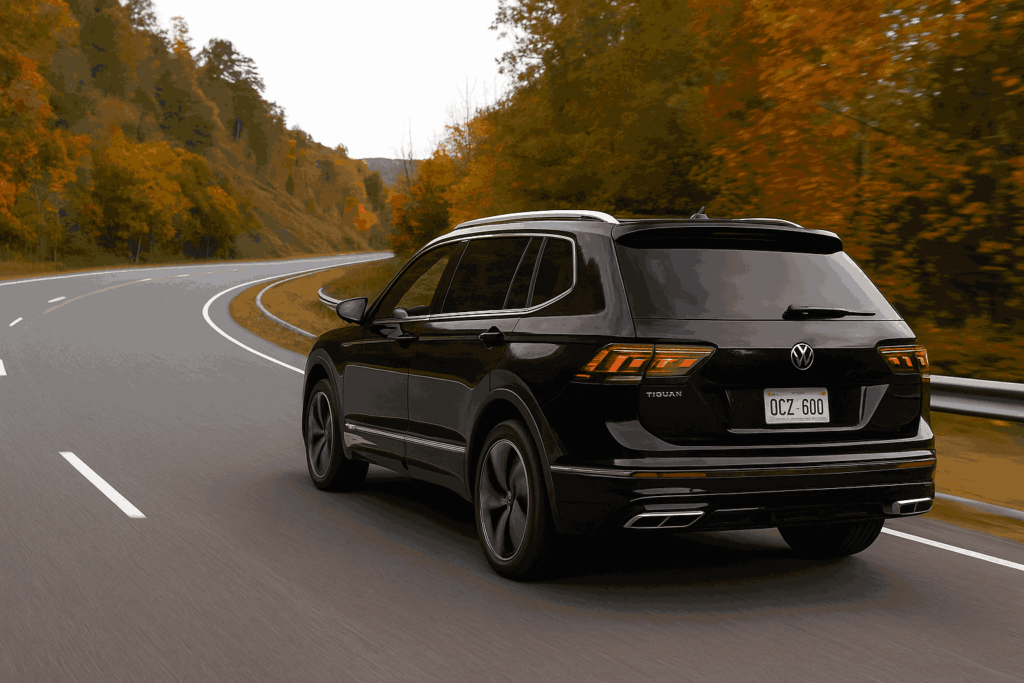
Fuel Economy & Real-World Driving
During our own testing, the fuel economy results were actually better than expected—especially for a gasoline-powered SUV that isn’t a hybrid. In normal mode, we were averaging 27-28 MPG on mixed roads, with a few stretches on the highway even surpassing 35 MPG when traffic wasn’t a dreadful mess. In colder weather, that number dipped closer to 25 MPG, which still isn’t bad considering some bigger V6-powered rivals like the Toyota Highlander can struggle to muster the same efficiency.
Around town, especially in crowded areas with lots of stops and slow crawls, the engine had to ignite more often and drink a little extra, but the consumption didn’t feel brutal. If you’re coming from a 2020 or older model, you’ll notice fewer issues like jerking or hesitation when accelerating, which helps both mileage and sanity. Long term, the monthly expenditures on oil changes, fuel, and general expenditures felt manageable—even after 8k kilometers (around 5k miles).
And hey, in today’s world, any saving of a coin counts—especially with fuel prices still doing their best impersonation of a roller coaster. Compared to competitors like the Toyota RAV4, this one holds its own in a very competitive field.
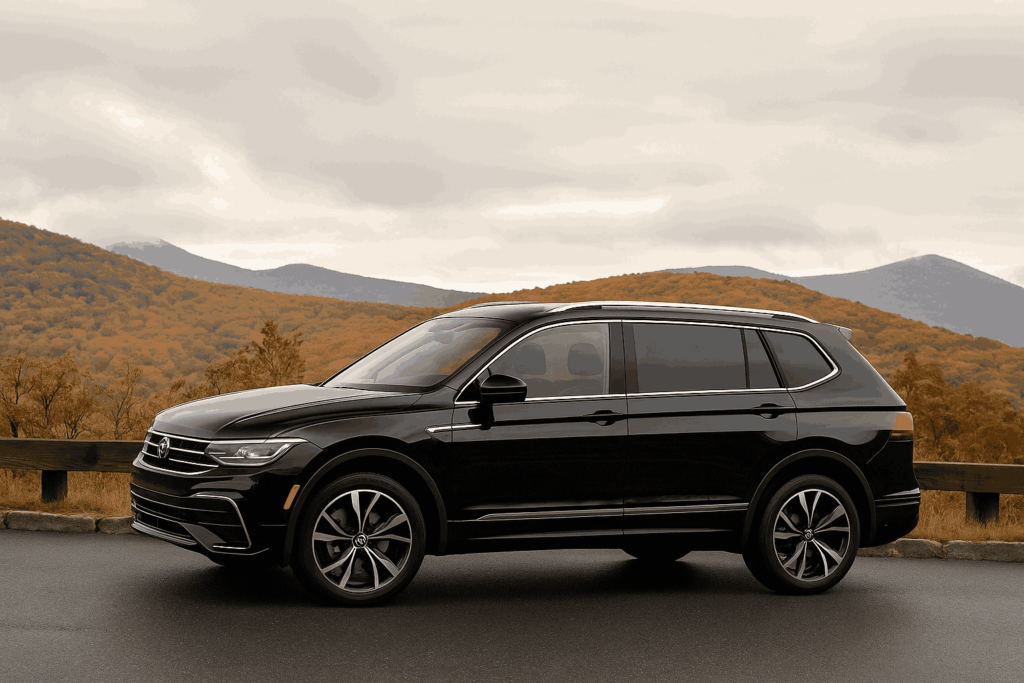
Interior and Comfort
Right off the entry, the cabin feels like it was designed by someone who gets it—you know, someone who’s had children, owned dogs, and tried to buckle in a car seat while holding gas station snacks. The seats are plush, with solid bolstering, soft cushions, and decent breathability, even on long highway drives. The leather feels high-quality for this segment, and I appreciated how touch-sensitive controls were balanced with real buttons, knobs, and even tactile adjustability (a rare comfort in 2023, apparently). Space-wise, the second-row is generous, but the third row? It’s more for children or that one friend who claims they’re “fine” with tight spots. The dashboard is clean, the panels flush, and visibility out the windows is good, even with a high hood. During our testing, the climate system quickly kicked in—no more cold starts that make you question life decisions. There’s also some sculpting in the cushions that helps support your muscle groups (including those you forgot you had), and even after 100 lbs of gear in the trunk, it still handled bumps like a champ. Sure, the third-row’s knees-to-dashboard situation is a bit cramped, but for a compact SUV, it rides smoothly, absorbs road impacts, and even keeps wind noise low. Bonus: the SE trim’s upgrades and improved bolstering make this modest interior feel premium—especially when compared to older 2010 vehicles that still smelled like crayons.
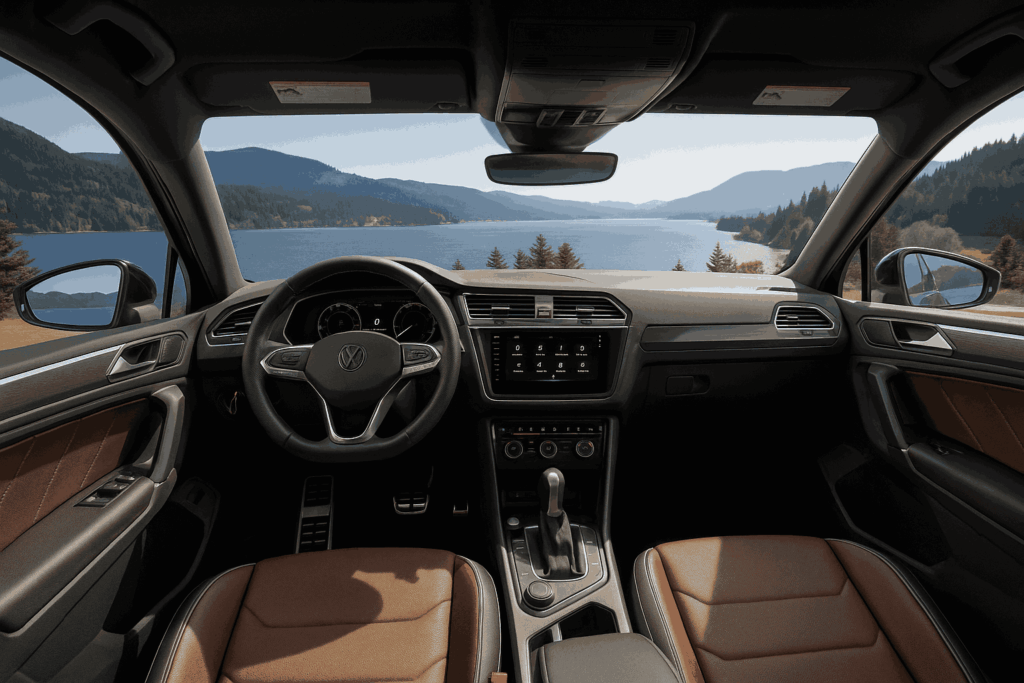
Cargo & Practicality
Let’s talk space—because whether you’ve got three dogs, two kids, or just a mountain of Costco runs, cargo volume matters. With the second-row seats folding down, the interior opens up to a generous 73.4 cubes, which is right on par with options like the CR-V and even the Toyota RAV4. Behind the second row, you’re still looking at 37.6 cubes, which fits a surprisingly large amount of stuff (yes, even that random tray of 12-packs you thought you didn’t need).
The center console is deep enough for sunglasses, chargers, and a rogue snack bar, and the cupholders don’t let go of your drink like some older 2021 Tiguan used to. If you’re into towing, the vehicle is rated for 1,500 to 3,500 pounds (depending on whether you’ve installed the hitch), making it flexible for families and campers alike.
We did notice no weird rattle from the dash, even when fully loaded—which isn’t always the case in compact SUVs. There are smart fixes too, like pockets for bottles, and a well-placed button for seat release at the back. Compared to the Q5 or Kia, this one just feels more practical, like someone actually thought through the layout for occupants with real-life stuff to carry.
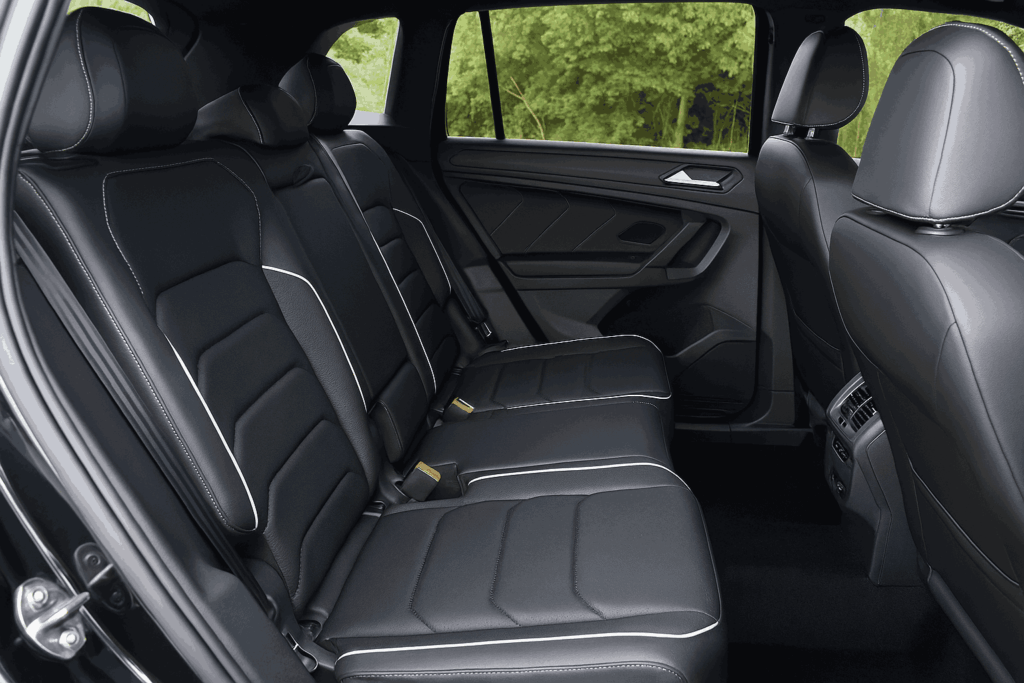
Tech & Daily Use Experience
The infotainment system here is mostly a win, though not without its quirks. The 8-inch touchscreen sits at the center of a digital cluster that includes a crisp speedometer, navigation, and key vehicle information. I tested both Android Auto and Apple integration, and they worked great, with wireless charging and USB-C ports keeping my smartphone topped up during long stop-and-go drives.
The screen is responsive most of the time, but I did catch one freezing moment when juggling navigation and audio controls—a quick reboot fixed it, but still. Passengers loved the Radio, satellite, and Focal stereo setup (if you spring for it), which actually made the car feel a bit more like a Tron scene when driving at night with the cluster glowing.
It’s not quite Pioneer-level, but it beats the stock system found in older models. Lane assist, blind-spot detector, and other aids run through the same interface, and while some buttons feel a little cluttered, the software is mostly clean and easy to control. If you want a sleeker feel, the Volkswagen Arteon does this whole tech vibe with more polish—but for the price, this setup gets the job done without turning a tech chore into a daily frustration.

Safety and Driver Assistance Tech
From the forward-collision warning to adaptive cruise control, the safety suite here checks nearly every desirable box—and does so without making your steering wheel vibrate like a blender on high. During driving, the lane-keeping assist and blind-spot monitor worked well in real-world traffic, offering clear alerts without excessive beeps. On highways through Canada, where I tested Travel Assist in semi-autonomous mode, the system held lane and speed with confidence, even in poor weather.
According to IIHS and NHTSA, the crash-test results for this Volkswagen are strong, with automatic emergency brakes helping replicate success seen in competitors like the Volvo XC90 Recharge. I did notice a minor issue where the sunroof didn’t fully open, but the dealer handled the replacement under warranty—no supply chain drama, thankfully. All the key sensors, from blind-spot detection to forward-collision assist, functioned as expected without any known bugs or distraction issues, which isn’t something every website or dealership can say these days.
Warranty and Maintenance Plan
If you’re the type who reads the fine print before signing (good for you), the warranty coverage here is actually pretty solid—though not quite class-leading. Volkswagen includes a four-year/50,000-mile bumper-to-bumper plan, which is about average these days, but still covers the powertrain, emissions, and most repairs that aren’t your fault. You’ll also get two years of complimentary scheduled maintenance, covering oil changes and regular service at 10k and 20,000 miles (with 15,000-mile intervals after that, depending on your dealer). My VW dealership had a decent technician who didn’t treat my questions like I was asking about rocket science—always a win.
Compared to 2019s, the newer plan drops from six to four years, which feels like a reduced deal, but at least certified Volkswagens get some added perks. If you hit 74k miles or beyond and something like a sensor or valve gives out, just know you’ll be in the uncovered category, which could cost you upwards of $8K if it’s an intake or cylinder head issue. So yes, recommending an extended plan may not be a bad call—especially for those doing the train of 5k commutes every week and hoping their steering or console won’t need a buyback event to get replaced.
Final Verdict
Here’s the truth: this isn’t one of those vehicles that tries to sugar-coat its way into your heart with gimmicks. It’s a VW that just works—for buyers who value design, safety, and a positive driving experience without draining their bank account on rising fuel bills or strange throttle behavior. Are there a few annoyances? Sure—alarms you can’t turn off, and some slow screen speeds that make you tap again like your life depends on it. But the pros genuinely outweigh the quirks. After driving a batch of rivals like the Toyota Corolla Cross and Subaru, I’d still recommend this for its overall balance of economy, quality, and real-world livability. Some might complain about missed features or small issues, but in my case, I’ve never traded back, and I’m happier for it. If you’re a keen owner who cares about the details—and can live with a little annoying beep here and there—this one makes a strong case to choose it over the usual suspects. The Volkswagen Tiguan isn’t perfect, but it’s got that everyday goods-hauling, kid-hauling, sometimes-you-just-want-quiet kind of vibe that fits real lives better than you’d notice at first.
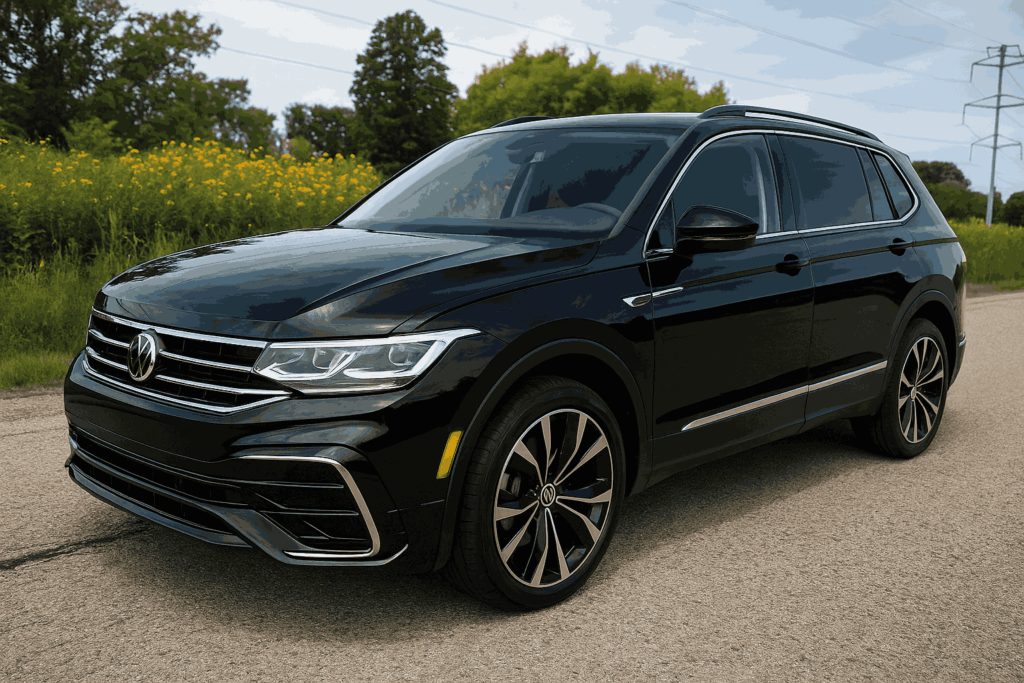
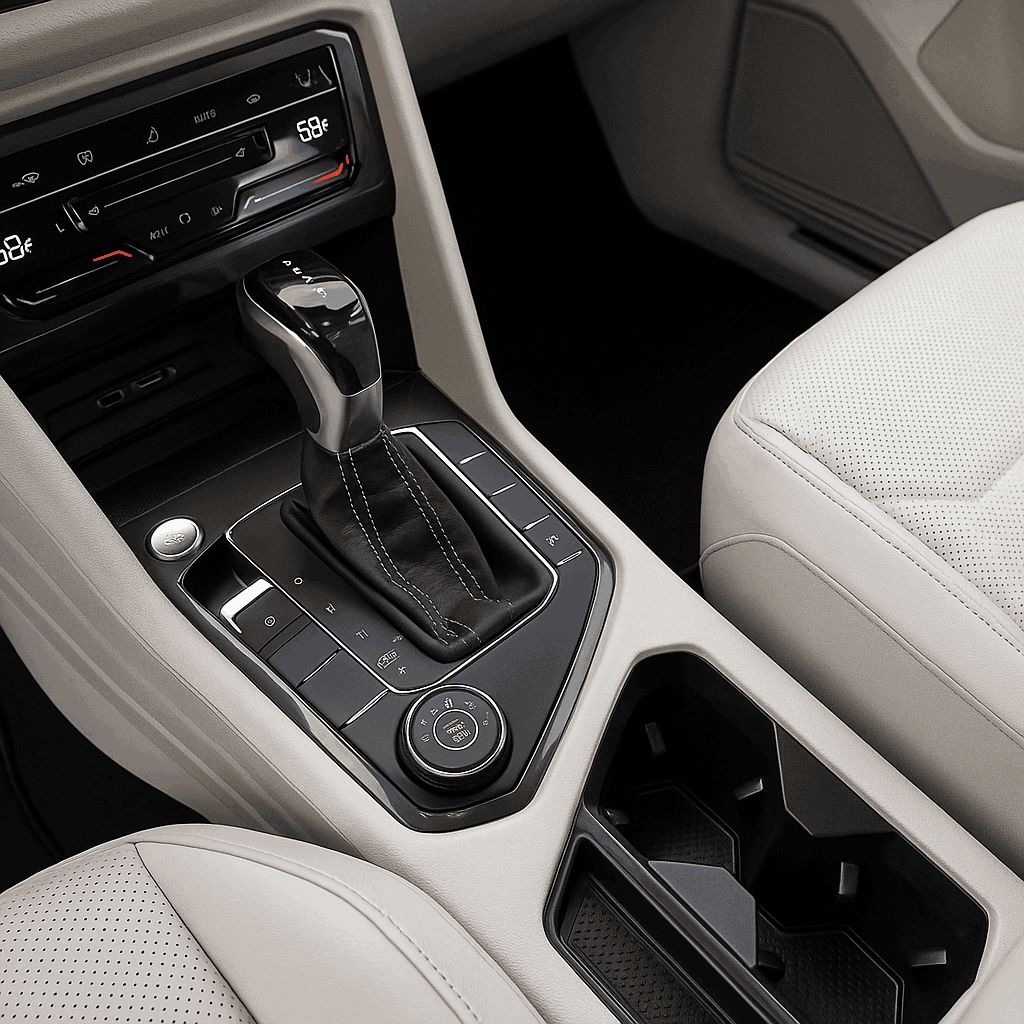
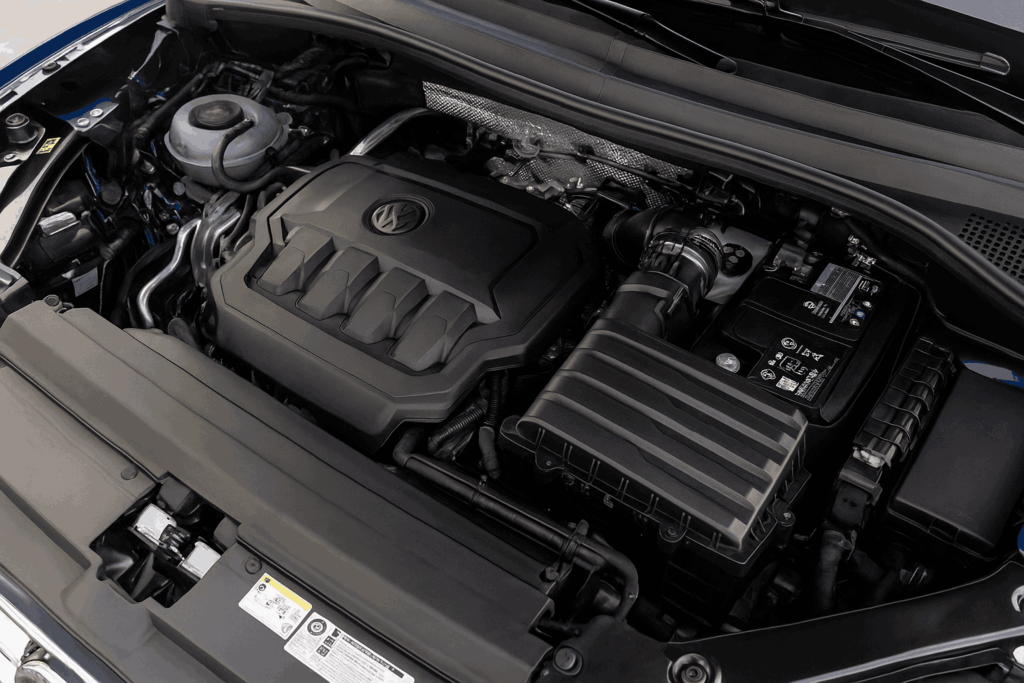


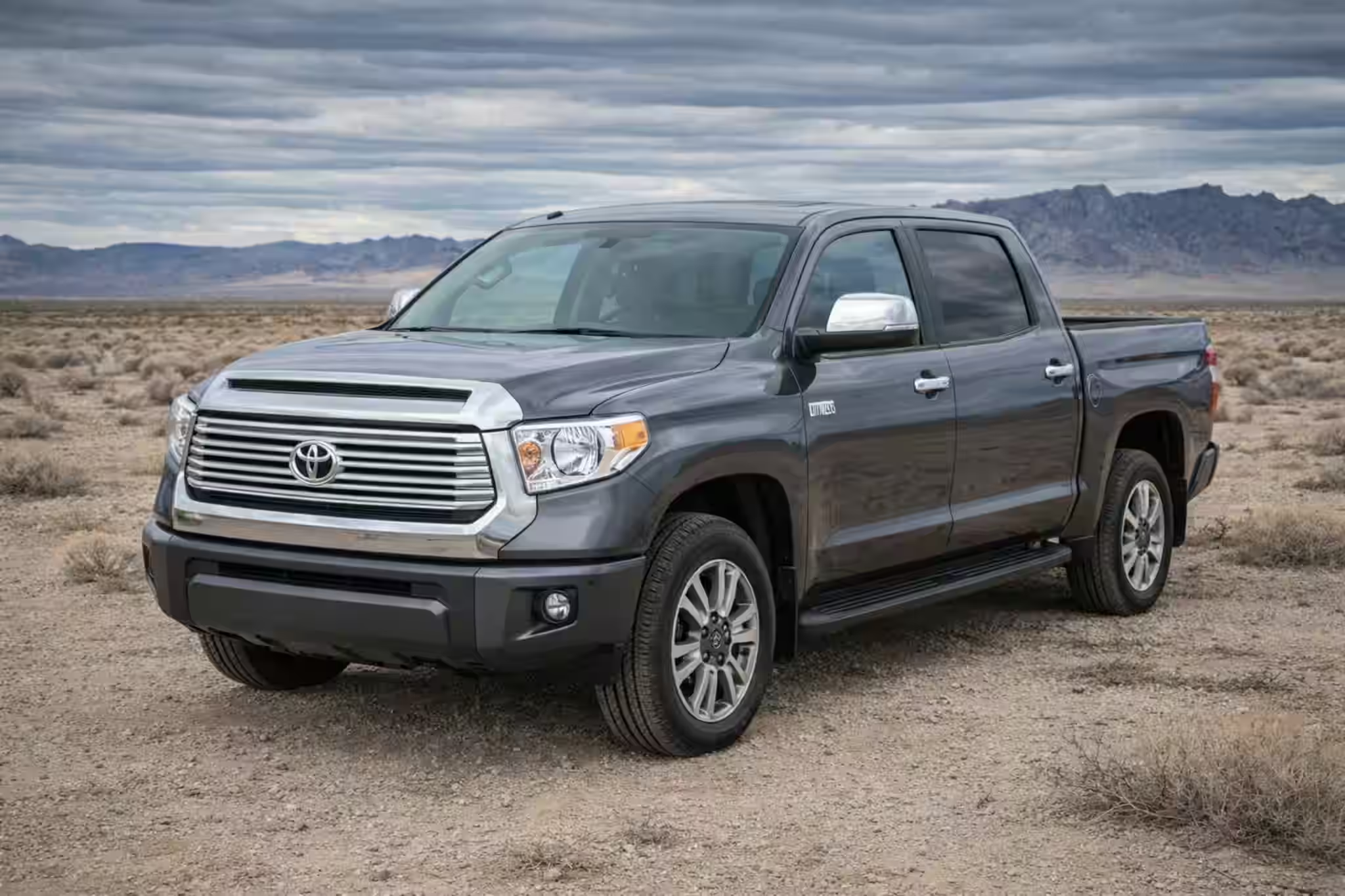
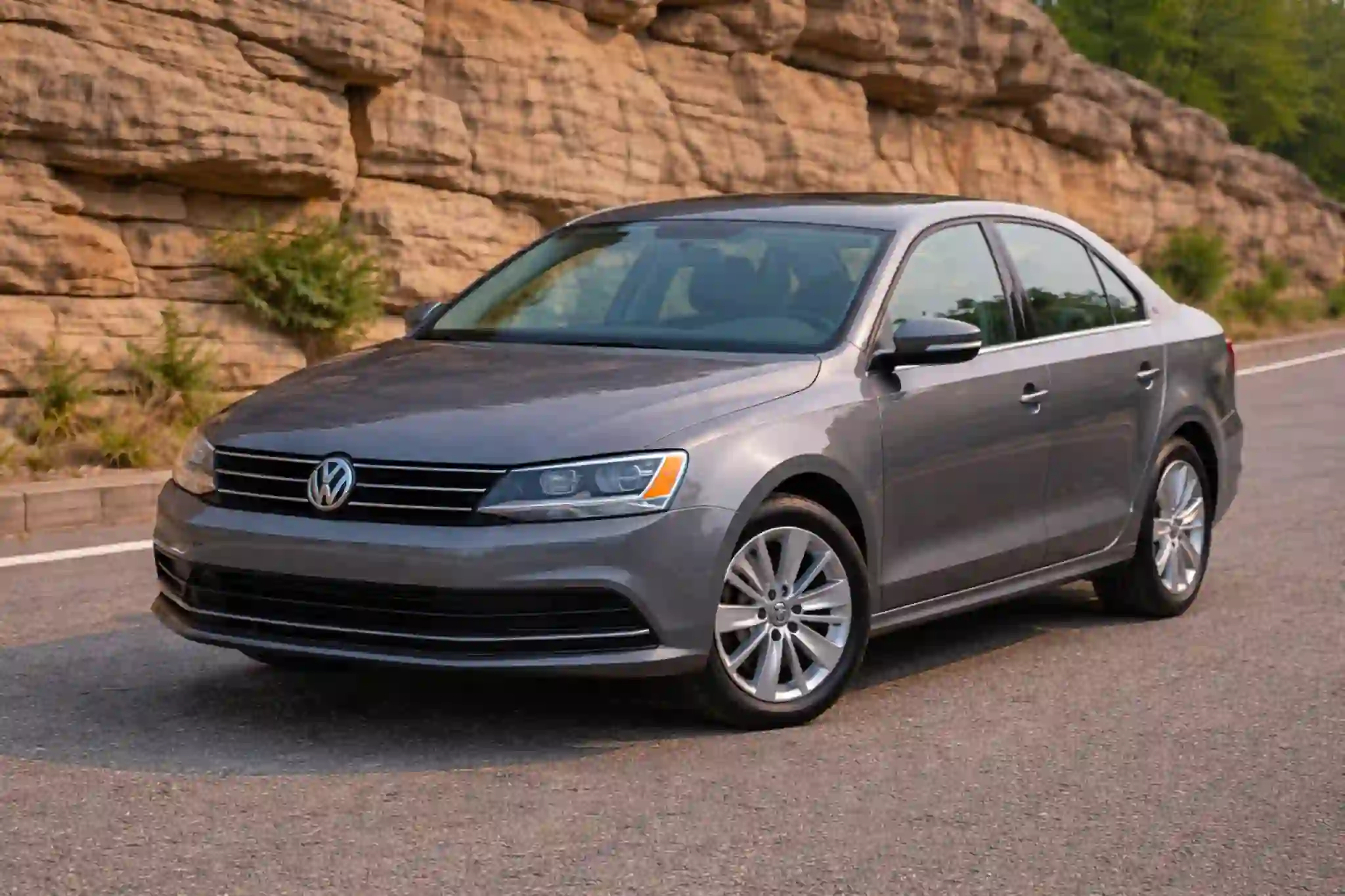
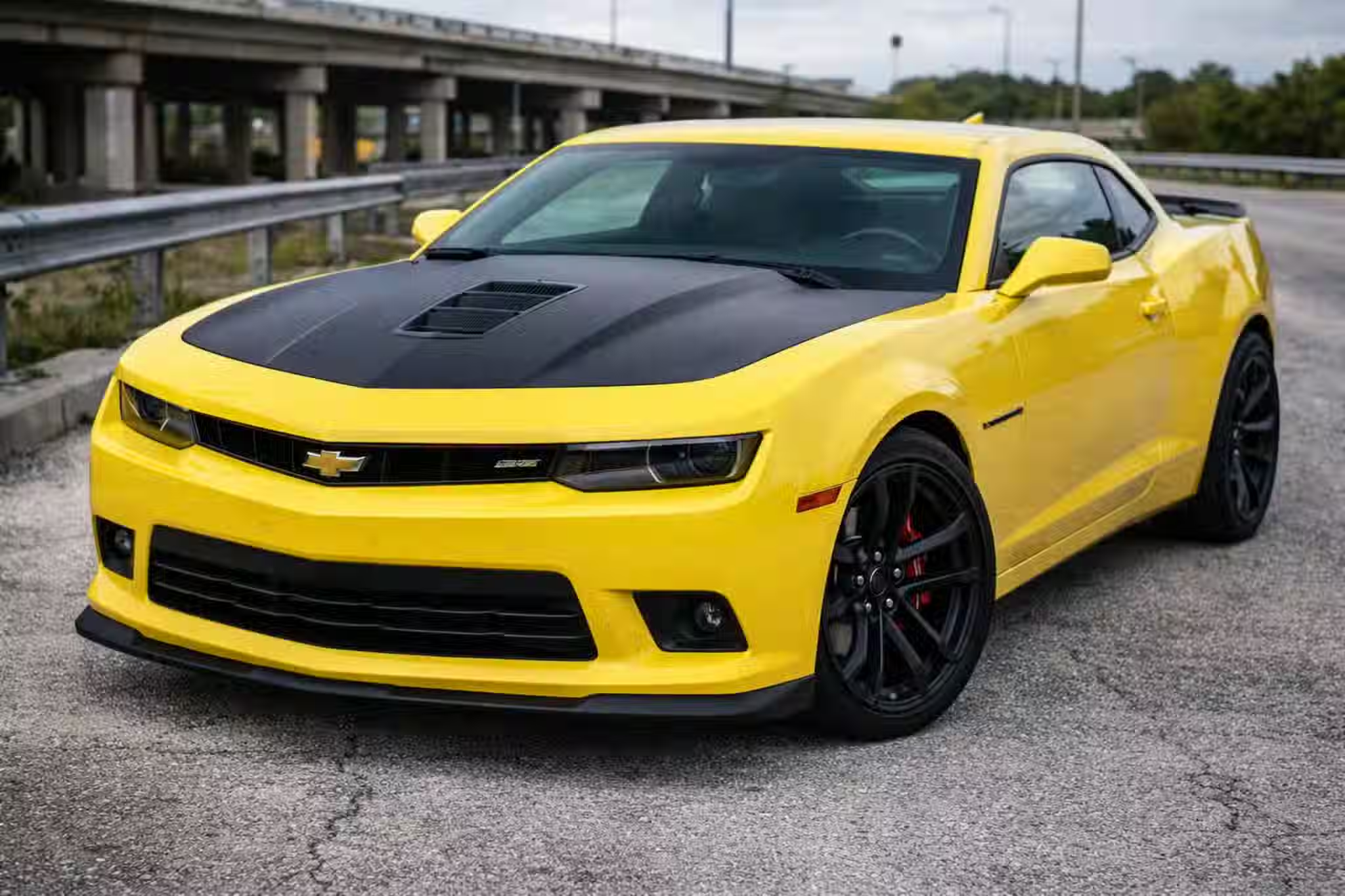
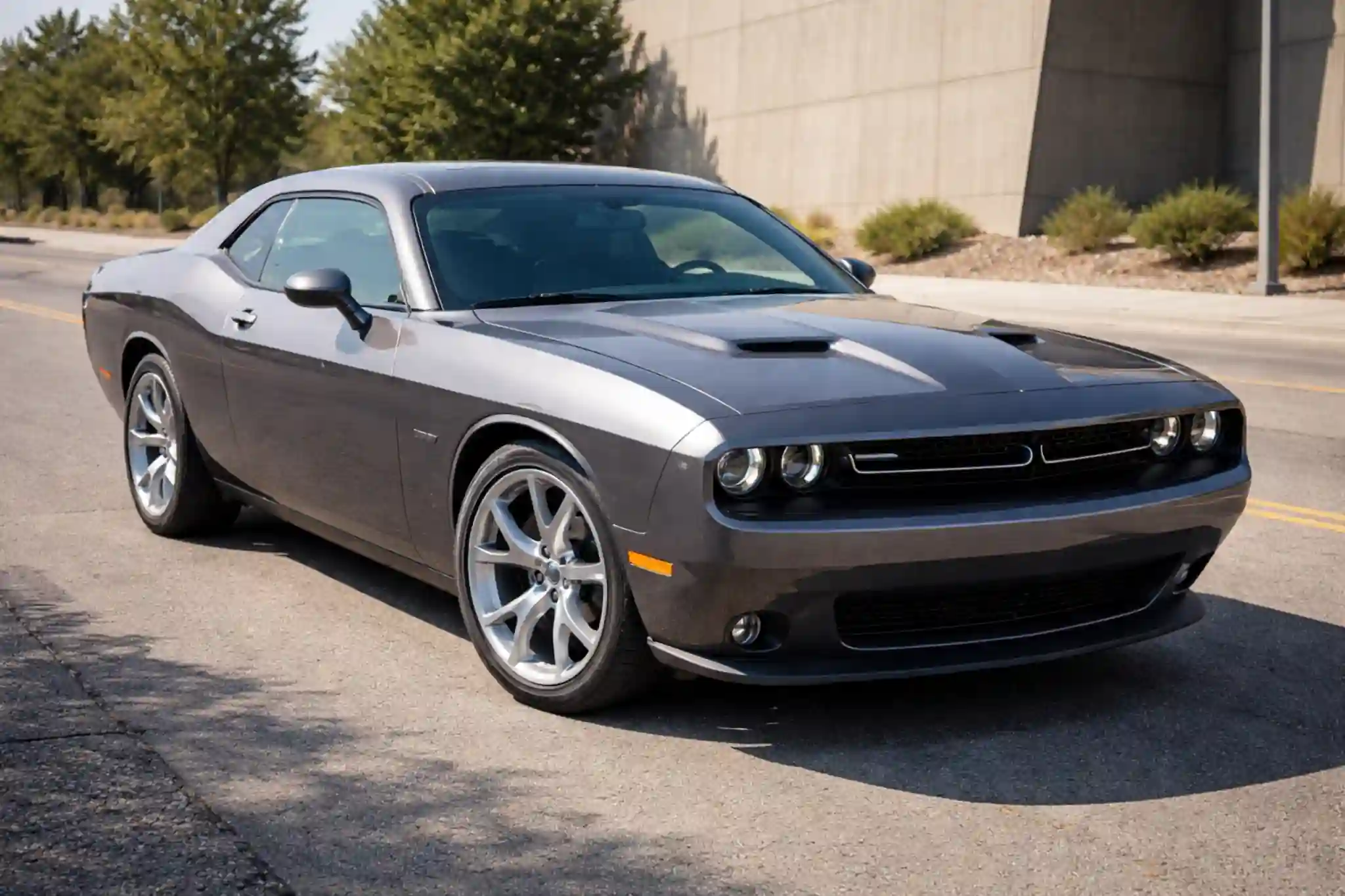
This Post Has 3 Comments
Pingback: 2025 Volkswagen Jetta 1.5T Sport Review & Updates
Pingback: 2022 Mazda Miata RF Review: Pure Driving Fun Returns
Pingback: 2024 Volkswagen Tiguan Review: Surprisingly Refined Ride